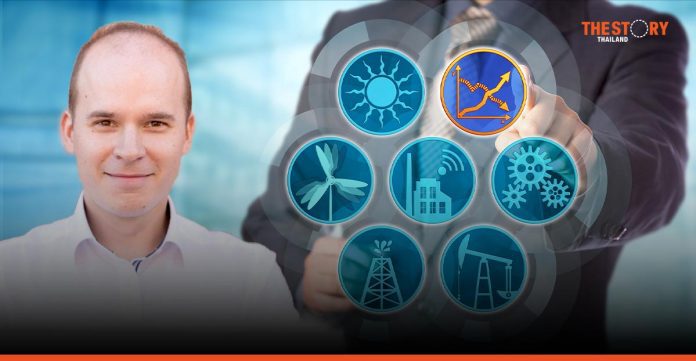A clear disconnect exists between sustainability practices and digital transformation initiatives across organizations in Thailand, according to a latest report by Paessler, the monitoring experts for IT infrastructures and networks.
Titled Keeping Watch: Monitoring Your Path to a Sustainable IT, the report aims to shed light on the current state of sustainability practices among businesses, and deep dives into drivers and barriers in deploying sustainable IT practices. The report revealed that lack of technical know-how on planning implementation (58 per cent), lack of clarity from governing bodies on reporting standards (45 per cent), cost of deployment (48 per cent), and balancing the ESG metrics with growth targets (40 per cent) as the top barriers to adopting sustainability practices in Thailand.
55 per cent organizations in Thailand are optimistic on the business outlook for the next three years. The report revealed businesses in Thailand view sustainability and digital transformation in silos and not as intertwined. Organizations are working on developing sustainability frameworks and digital transformation strategies in a piecemeal manner. As a result, their resources whether budgets, time or skills involved, are less effective. They also lack the capabilities and the expertise to develop a sustainability framework and work on it, clearly highlighting a disconnect between the engaged sustainability practices and their digital transformation journeys.
At the same time, organizations in Thailand are realizing the benefits of IT infrastructure monitoring, a key cog in an organization’s IT strategy to help monitor environmental factors like temperature, humidity, CO2 etc. (100 per cent), optimize energy consumption (95 per cent), quantify the amount of resources saved (92 per cent), analyze the actual need for further IT equipment (86 per cent), and reduce emissions (78 per cent). Therefore, a sustainable IT strategy backed by a comprehensive monitoring framework must be a vital part of the business operations. This will ensure sourcing material; production processes and all other components of a sustainable business can be integrated by the overarching digital transformation strategy.
With Thailand’s economy projected to expand by 3.6 per cent in 2023, businesses are focusing on digital transformation, sustainability and increasing productivity and efficiency as high priority areas to be better positioned as the global economy slows.
“Many businesses see sustainability and profitability as a contradiction, but when the right values are measured, it results in cost efficiency and a competitive lead. It is imperative to build a robust IT strategy, a digital transformation strategy and develop a sustainability framework which are all integrated by a comprehensive IT monitoring framework. Bridging the gap between digital transformation and sustainability to make data-based decisions can result in resource optimization and bring economic benefits for businesses,”said Felix Berndt, Regional Sales Manager of Paessler Asia Pacific, Paessler.
A head of operations at a FMCG company in Thailand explained, “The pandemic has changed the way we do our business today. If we did not pivot our business model and go big on eCommerce and DTC (direct to consumer) we would have struggled as a business. The digital transformation journey in our business has been quite successful and we plan to continue this journey going forward.”
Sustainability practices (ESG) and Digital Transformation efforts not on the same page
While sustainability is one of the top 3 business priorities for the next three years, it does not even feature as one of the top 5 challenges for businesses across markets and sectors. Instead challenges such as increasing competition, digital transformation, driving growth (top line), improving profitability (bottom line), and talent management are seen as top five challenges by businesses. The top three drivers for adopting sustainable frameworks are reputation (45 per cent), following industry operations standards (36 per cent) and adhering to Regulatory framework and compliance (24 per cent).
The technology, telecom, and datacenter vertical (82 per cent) was seen as the top vertical which already has a sustainable IT strategy in place followed by manufacturing (79 per cent) and essential services/ public sector (66 per cent). While the public sector lags in this regard, 31 per cent said that they will embark on their sustainable IT strategy journey in the next year.
Digital transformation can enable sustainability by making businesses more efficient, reducing their environmental impact, and helping them meet sustainability goals. Engaging the right digital technologies can help monitor and optimize energy usage, reduce waste, and streamline supply chains. The knowledge and importance of a sustainable IT strategy can be improved if backed by an effective IT monitoring backbone.
Alibaba Cloud’s Energy Expert helps analyze carbon footprint for The first Olympic Esports Week
Siemens presents €2 billion investment strategy to boost innovation and resilience





